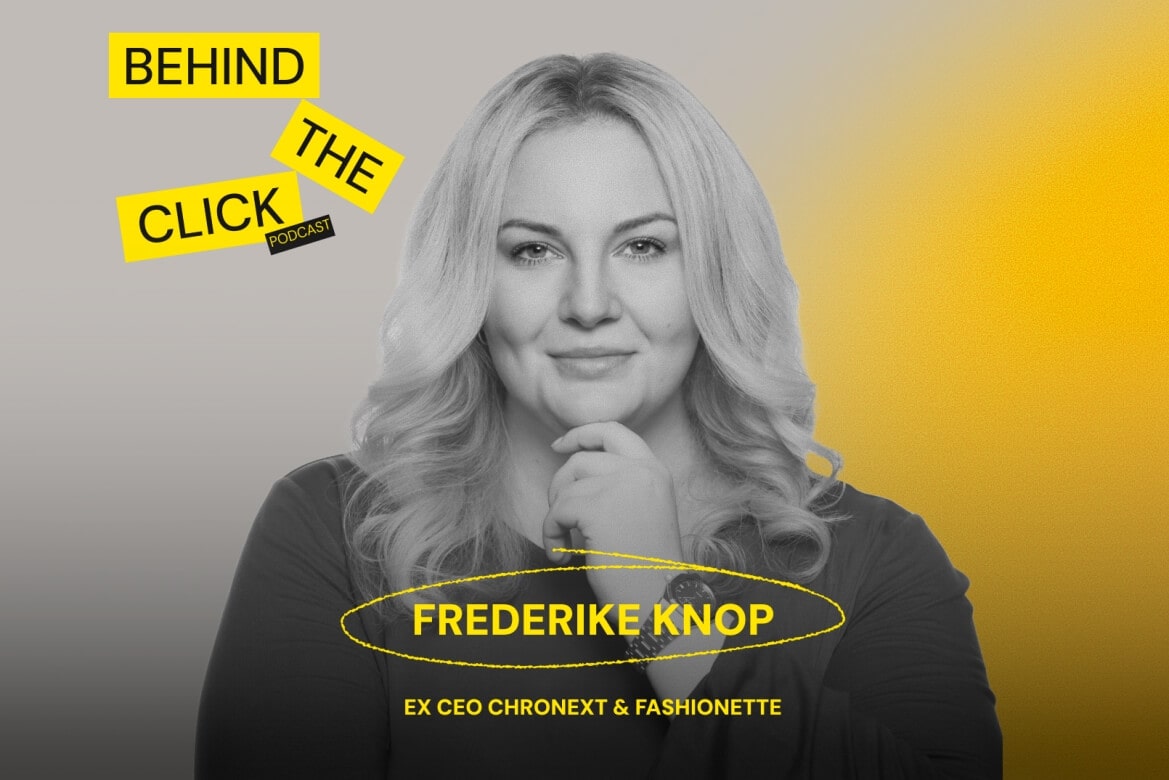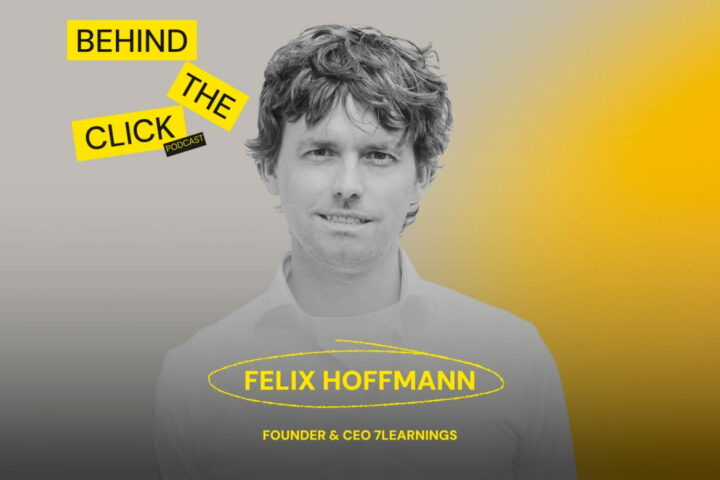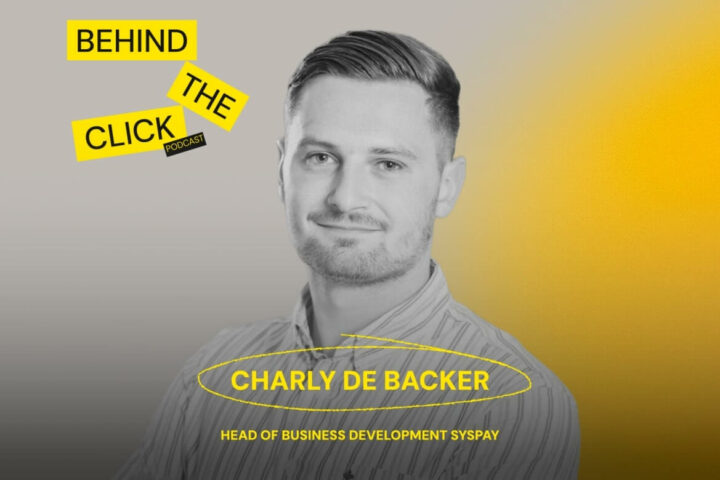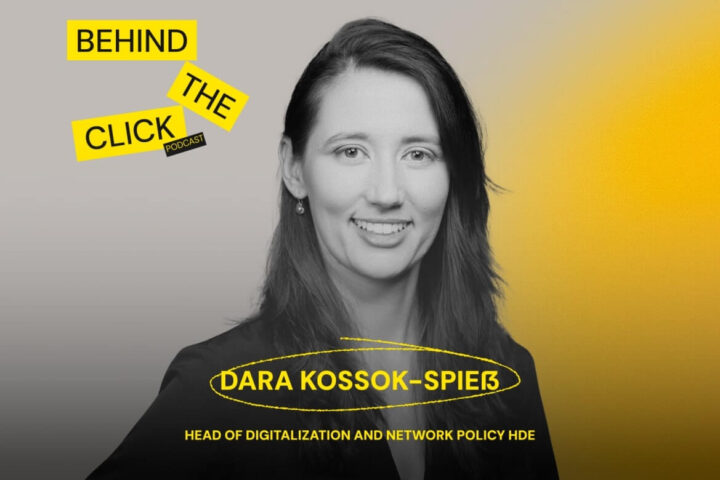Behind the Click Podcast with Frederike Knop: ambition, crisis, and the courage to redefine success
Written by
Editorial TeamPublished on
On Behind the Click, Frederike Knop shares her journey from scaling Audemars Piguet to leading Chronext through insolvency, reflecting on ambition, crisis, and redefining success as a young CEO.

Some career stories are written in straight lines. Frederike Knop’s is not one of them. In her conversation on Behind the Click, hosted by Janine Vanessa Heinrich and powered by E-commerce Berlin Expo, she opens a window into the heady rush of ascent, the discipline it demanded, and the quiet reckoning that followed.
From the start, Frederike is careful to separate titles from purpose. The goal was never the label – it was the responsibility that came with it, the chance to see further and shape more. She grew up in a family where work was part of daily life, where striving hard was normal and learning from those ahead of you was expected. That current carried her early into high-stakes rooms, where she said yes to unglamorous tasks simply to be present, to listen, and to learn. There’s an honesty in how she describes those years: the satisfaction of being needed, the buzz of “the bustle and hustle,” and the belief that growth comes to those who show up and keep showing up.
Learning in the world of luxury watches
The years she spent at Audemars Piguet, one of the most respected names in Swiss watchmaking, shaped her in profound ways. She joined young, surrounded by colleagues twice her age, and was thrown into the heart of a brand determined to redefine itself. AP’s approach was bold: create desire by limiting supply, turn distribution toward brand-owned boutiques, and nurture a sense of belonging so strong that clients felt they weren’t buying a watch – they were being admitted to a family.
It worked. Headcount expanded dramatically, revenue multiplied, and the brand’s presence in Germany and Europe was transformed. Yet what stays with Frederike most isn’t the financial metrics. It’s the culture that bound people together across markets and the conviction that exclusivity, when built on authentic community, can move mountains.
Choosing challenge over comfort
After nearly a decade in luxury, Frederike took a step that surprised many: leaving the stability of AP for the energy and uncertainty of Chronext, a Cologne-based scale-up in the pre-owned watch market. On paper, it was a gamble. In practice, it was the pull of founders she admired, a problem worth solving, and the chance to build something from the inside.
She describes her first day vividly: a buzzing, noisy sales floor on one side of the office, and the focused calm of watchmakers on the other. It was a far cry from Swiss pine and order, but it felt alive. The challenges, however, were real. Teams were larger than they needed to be, projects had to be rethought, and the company was already wrestling with investor expectations and structural strain.
Leading through “renovation”
When Chronext entered insolvency proceedings, Frederike agreed to step up as CEO. She doesn’t present this as a triumph but as a responsibility. Investors had been candid with her, employees trusted her, and she felt the weight of what she’d been handed. Rather than framing it as collapse, she chose to call the process a “renovation” – a chance to restructure and preserve what mattered.
The decisions were tough. Headcount had to be reduced, projects were cut, and processes rebuilt. She admits that early on she measured only performance, and learned painfully that some of the most valuable people were those who held teams together even if they weren’t the most efficient on paper. Transparency became her guiding principle: sharing more openly so colleagues could make their own choices and face reality with dignity.
Evolving as a leader
Frederike is candid about how this period reshaped her. She describes herself as someone who didn’t easily trust others, who preferred to keep everything in sight. Feedback that she seemed “cold” forced her to rethink. She began sharing more of herself, offering small pieces of personal context to become approachable without losing authority.
That openness didn’t soften her standards. It gave them weight. People worked differently when they knew the “why” behind decisions. For Frederike, it was a move from control to connection, from keeping all the balls in the air herself to letting others carry some of them – and watching productivity rise in the process.
When success doesn’t feel like home
After the company was sold, Frederike realized something quietly: the place she had fought to protect no longer felt like hers. She decided to left. Stepping away wasn’t easy. Bodies don’t adjust overnight to life after years of four-hour nights. Habits resisted, even as her mind was clear. But she began to redefine balance on her own terms – not as a strict 6 p.m. cutoff, but as a more integrated rhythm where ambition and well-being could coexist.
She’s honest about the cost. The sacrifices were real, and the price was high. Yet she still calls the journey worth it. What she would change, she says, is not the direction but the pace – listening to herself earlier, learning sooner what she now knows about leadership, balance, and the human side of performance.
The quiet lessons Frederike leaves us with
What makes this conversation compelling is not a single quote or formula, but the way Frederike threads ambition with accountability, and performance with humanity. She resists giving a blueprint. Instead, she shares her lived truth: that extraordinary progress often demands extraordinary effort, but that effort must be tempered with self-awareness and care if it is to last.
Her reflections are as relevant to e-commerce founders as to watchmakers: belonging matters, community outlasts campaigns, and leadership is as much about transparency as it is about targets. And perhaps most importantly, success can and should be redefined when the view from the mountaintop is not what you expected.
To hear Frederike’s story in full, in her own voice and with all the nuance that can’t fit on a page, watch the complete episode of Behind the Click:
You can also listen to the episode either on the Spotify or Apple Podcasts.
***


